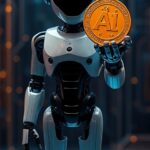
Worried AI might take your job? You should be. By 2025, artificial intelligence won’t just change how you work—it could decide if you work. This guide breaks down what’s coming, which roles are most at risk, and how to future-proof your career before the AI revolution leaves you behind
AI is far more dangerous than nukes.
Elon Musk
Yesterday, I saw a protest outside a tech company’s headquarters. Workers were holding signs that read, ‘AI shouldn’t replace us!’ and ‘Humans, not robots!’ It made me stop and think—by 2026, artificial intelligence won’t just change how we work; it could decide whether we work at all. In this guide, we’ll explore which jobs are most at risk, how AI is reshaping the workplace, and what you can do to stay ahead before the AI revolution leaves you behind.
The Current State of AI in the Workplace
a) Jobs Already Transformed by AI
AI isn’t waiting for 2026 – it’s already reshaping jobs right under our noses. Customer service has been hit hard, with chatbots handling basic inquiries that once kept entire call centers busy. Remember when data analysis required specialized statisticians? Now AI tools crunch numbers in seconds that would’ve taken humans days.
Accounting looks completely different too. Software now automatically categorizes transactions, reconciles accounts, and even flags potential errors. Marketing professionals have watched their jobs transform as AI tools create content, analyze campaign performance, and predict consumer behavior better than humans could.
Even in healthcare, AI reads radiology images, helps diagnose diseases, and monitors patient vital signs. Doctors aren’t being replaced, but their jobs are shifting toward interpretation and patient interaction rather than raw analysis.

b) Industries Most Vulnerable to Automation
Manufacturing has always been automation’s playground, but now even complex assembly jobs are at risk. The transportation sector is facing a massive shift as self-driving technology matures – not just for passenger vehicles but for long-haul trucking and delivery services.
Retail is another industry on the chopping block. Automated checkout systems and inventory management have already reduced staff needs, and AI-powered online shopping experiences are getting eerily good at predicting what you want.
Banking and finance professionals should be worried too. Algorithm-driven trading, automated loan approvals, and AI financial advisors are handling tasks that once required human judgment.
c) Skills Machines Excel At vs. Human Strengths
| Machine Strengths | Human Strengths |
|---|---|
| Data processing at massive scale | Creative problem-solving |
| Pattern recognition in complex datasets | Emotional intelligence |
| Repetitive task execution without fatigue | Ethical decision-making |
| Consistent performance 24/7 | Adaptability to novel situations |
| Perfect memory recall | Contextual understanding |
The dividing line isn’t just about technical vs. creative skills anymore. It’s about whether a task can be reduced to rules and patterns. Machines crush humans at anything involving data analysis, calculation, and repeated processes. They’re getting scarily good at prediction too.

Predictions for AI Impact in 2025
By 2025, AI won’t just change jobs—it will rewrite the rules of work. Routine tasks face automation, but creativity and strategy will skyrocket in value. The catch? New opportunities will only go to those who adapt now. Will you be replaced, or will you be the one calling the shots?
a) Expert Forecasts on Job Displacement
The numbers aren’t looking great, folks. According to the World Economic Forum, AI could displace 85 million jobs by 2025. But here’s the kicker – they also predict 97 million new roles emerging.
McKinsey’s take? About 30% of work hours across the US economy could be automated by 2025. That’s roughly 45 million Americans needing to learn new skills or find different jobs.
The reality is messy. Some experts think these predictions are too conservative. Others say they’re fear-mongering. The truth probably lies somewhere in between.

b) Growth Areas Creating New Opportunities
While robots take some jobs, they’re creating others. Big winners by 2025:
- AI ethics specialists
- Human-AI collaboration managers
- Data detectives and analysts
- Cybersecurity experts
- Digital transformation consultants
The pattern is clear: jobs combining tech knowledge with uniquely human skills are booming. Think empathy, creativity, and complex problem-solving.
The development of full artificial intelligence could spell the end of the human race.
Stephen Hawking
c) Economic Models of AI Job Impact
Economists are split on the big picture effects. The optimistic model suggests a net positive of 12 million jobs by 2025. The pessimistic one? Up to 75 million jobs lost globally.
The real issue isn’t just job numbers but wage polarization. Middle-skill jobs are vanishing while high and low-end positions grow, creating an hourglass economy.
Jobs at Risk of Complete Replacement
a) Identifying High-Risk Professions
| Job | Replaced By |
|---|---|
| Data Entry Clerks | AI + RPA |
| Telemarketers | AI Chatbots |
| Retail Cashiers | Self-Checkout |
| Admin Roles | Automation Tools |
| Copywriters | AI Text Generators |
| Graphic Designers | AI Design Tools |
| Paralegals | AI Legal Tools |
| Accountants | Automated Software |
| Truck Drivers | Self-Driving Vehicles |
| Warehouse Workers | Robotics |
| Teachers | AI Tutors (partial) |
b) Timeline for Different Occupation Categories
The AI takeover isn’t happening overnight, but it’s moving faster than most expect:
| Occupation Category | Expected Timeline | Replacement Level |
|---|---|---|
| Data Processing | 2023-2025 | Near complete |
| Customer Service | 2024-2026 | Partial to complete |
| Transportation | 2025-2030 | Gradual then sudden |
| Legal Support | 2024-2027 | High for routine tasks |
| Content Creation | 2025-2028 | Hybrid models first |
| Medical Diagnostics | 2026-2030 | Augmentation before replacement |
Some industries will fight harder than others. Government roles might last longer due to regulatory hurdles, while private companies with tight margins will cut humans first.

c) Skills That Remain Uniquely Human
The robots aren’t taking everything, folks. Some skills just can’t be coded, no matter how advanced the algorithms get.
Emotional intelligence tops the list. AI can fake empathy, but it can’t feel it. When a client needs reassurance or a team member needs motivation, humans win every time.
Creative problem-solving is another human stronghold. Sure, AI can generate ideas, but it lacks the lived experience and contextual understanding to connect seemingly unrelated concepts in truly innovative ways.
Ethical decision-making remains firmly in our court too. AI follows rules but doesn’t understand the nuanced moral implications behind them.
Current AI is like a library without a librarian—full of data but no real understanding.
Gary Marcus
Conclusion
The rapid advancement of AI technology is reshaping our workplaces at an unprecedented pace. While some roles face potential automation by 2025, most positions will likely experience transformation rather than elimination. AI will continue to automate repetitive tasks, enhance decision-making processes, and create new efficiencies across industries—changing how we work rather than completely replacing human workers in most cases.
To thrive in this AI-enhanced future, professionals must embrace adaptability and continuous learning. Developing uniquely human skills like creative thinking, emotional intelligence, and complex problem-solving will become increasingly valuable as AI handles more routine aspects of work. Rather than fearing technological advancement, those who proactively upskill, collaborate effectively with AI tools, and focus on areas where human judgment remains superior will find themselves well-positioned for success in the evolving job landscape of 2025 and beyond.
_______________






Thank you for your sharing. I am worried that I lack creative ideas. It is your article that makes me full of hope. Thank you. But, I have a question, can you help me? https://www.binance.com/register?ref=IXBIAFVY
Can you be more specific about the content of your article? After reading it, I still have some doubts. Hope you can help me.
Thanks for sharing. I read many of your blog posts, cool, your blog is very good.